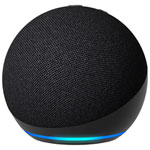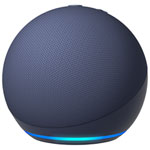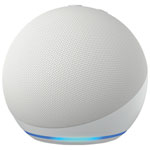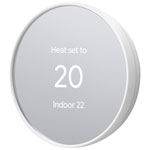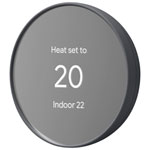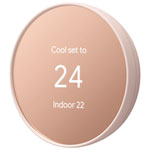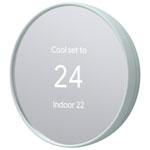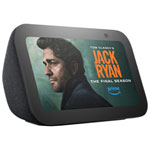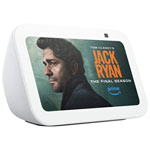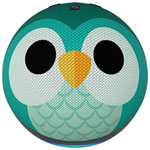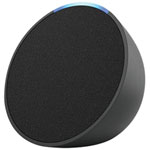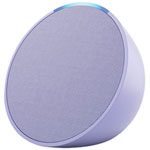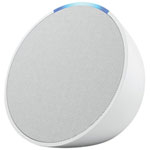Introducing Matter
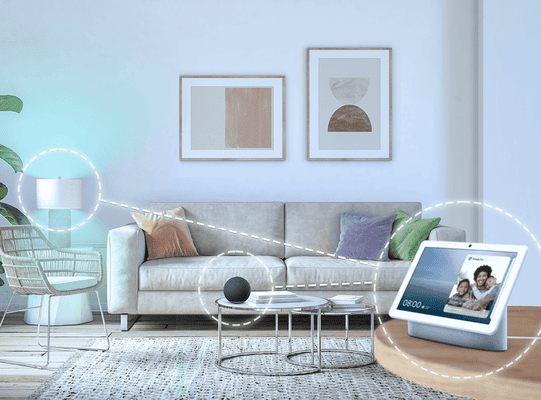
What's Matter?
Matter is a new standard through which smart home products can work together. Its not a platform, gadget, or app, but rather a universal, open-source language for smart tech.
What companies support Matter?
Google Home, Apple HomeKit, Amazon Alexa, and Samsung SmartHome all support the new standard. But Matter is not just coming from big tech. In all, about 300 companies are developing Matter-enabled products.
What can Matter do for me?
Matter is a secure, open-source, universal standard. So you can buy Matter-enabled smart home products based on their features, not their compatibility with any particular system.
You benefit by having more options to grow and enjoy a better smart home, one you control through your favourite voice assistant or mobile device.
What devices have Matter?
Matter-enabled products are here now, with many more on the way. You can find smart speakers, displays, thermostats, plugs, lighting, and more, ready with Matter.
Not sure if a product has Matter? Check out the product specifications or find the Matter logo on the packaging. Also, some smart devices you already own may have had Matter switched on through a software update. See the manufacturer's website for details.
Learn more about Matter and Thread
27 results
A common language for all smart devices
What makes a home “smart” is the devices you bring into them that can automate certain features for you. That includes being able to turn lights on or off by voice, as well as checking the thermostat or vacuum away from home, among so many other examples. The only catch is these devices don’t all communicate with one unified industry standard, which can make the experience feel unintuitive and clunky. That’s where Matter comes in.
What is Matter Smart Home?
Rather than a company in itself, Matter is an open-source standard supported and developed by an organization called the Connectivity Standards Alliance, formerly known by its old name, Zigbee Alliance. Zigbee was a previous attempt at creating an industry standard common networking language smart devices could adhere to, and while it didn’t achieve that goal, Matter is different because it’s backed by the largest electronics brands.
There are hundreds of them now, including big names like Apple, Google, Amazon, Samsung, LG, Signify, Belkin, Arlo, Ring, and so many more. What Matter is trying to do is remove the technical barriers that keep some of their products from communicating with different platforms. If one product works seamlessly with iOS devices, but not with Android ones, or if Google Assistant works and Siri doesn’t in communicating with a product by voice, Matter can bridge those divides to ensure compatibility out of the box.
This evens the playing field in various ways, not least of which because it makes smart homes device agnostic. It would no longer matter if a household is a mishmash of iOS and Android or Apple HomeKit, Google Nest and Amazon Echo devices. Nor would it force households to stick to one brand or ecosystem of devices.
How does Matter work?
Up to now, smart home hubs acted as centralized waypoints for smart devices to communicate, where you could then control things via a single app. However, limits still applied to the hub meant they weren’t able to see certain devices because there was no compatibility to begin with. Matter still needs a hub to work, only it can treat an existing smart home device as a hub. A Google Home or Nest device is one example, as is a Philips Hue Bridge or Samsung SmartThings Station. Devices like these can also be referred to as “Matter hubs.”
Matter also works on different protocols to keep devices connected. Wi-Fi and Ethernet are the obvious ones because they are what connect said devices to the Internet. There is also something called Thread, which uses Bluetooth Low Energy to establish connections with devices even when there is no Internet. This means you can control smart lights or adjust a smart thermostat anytime the Internet is down.
That’s also where the “border router” comes into play. These are not necessarily the same as Wi-Fi routers in that existing Matter hubs could function as border routers as well. They need to have compatible components that worked with the Zigbee standard or were built to be compatible with Matter going forward. What a border router does is connect directly to Thread devices together to join the network more easily. Thread devices can also connect with each other to create a mesh network of ad hoc connections.
That means you can bring in low-powered Matter-enabled devices that are largely passive, like motion sensors and trackers that run on very small batteries you don’t need to plug in or charge.
Matter and the future of home automation
Matter first launched in October 2022, and has since received a large degree of buy-in from some of the largest technology companies. Apple HomeKit, Google Nest, Amazon Alexa, Samsung SmartThings, Belkin WeMo, Philips Hue, LG ThinQ, Nanoleaf, Ecobee, iRobot, Roku and more are already on board. Any other company is able to join when they are ready.
Various smart devices work with Matter, like smart bulbs and light, smart plugs, blinds, thermostats, door locks and motion sensors. The compatibility list is set to expand to smart refrigerators, robot vacuums, garage door openers, smoke detectors and smart plugs.
It won’t work with home security cameras and audio streaming speakers because of the bandwidth involved. Certain features for compatible devices may also not work yet, like changing colours in a smart bulb or energy monitoring in a smart plug, for instance. Future Matter updates will look to add that kind of support.
With respect to security, Matter standard uses blockchain technology to verify a device’s identity and ensure transmitted data is always encrypted. However, the interoperability Matter promises doesn’t mean its security always supersedes that of the brand itself. For example, Amazon and Google may handle user data differently than Apple or Samsung does. Despite that, Matter aims to lock things down and bring transparency all at once.


